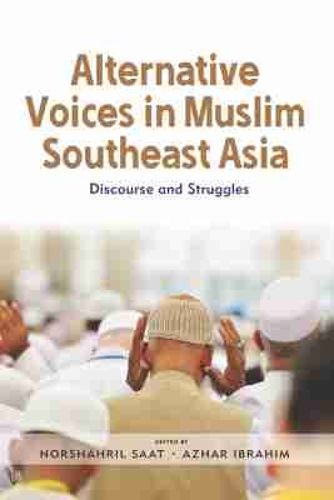Readings Newsletter
Become a Readings Member to make your shopping experience even easier.
Sign in or sign up for free!
You’re not far away from qualifying for FREE standard shipping within Australia
You’ve qualified for FREE standard shipping within Australia
The cart is loading…






This title is printed to order. This book may have been self-published. If so, we cannot guarantee the quality of the content. In the main most books will have gone through the editing process however some may not. We therefore suggest that you be aware of this before ordering this book. If in doubt check either the author or publisher’s details as we are unable to accept any returns unless they are faulty. Please contact us if you have any questions.
According to some observers, Southeast Asian Islam is undergoing a conservative turn. This means voices that champion humanist, progressive or moderate ideas are located on the fringes of society. Is this assessment accurate for a region that used to be known for promoting the smiling face of Islam ? Alternative Voices in Muslim Southeast Asia examines the challenges facing progressive voices in Indonesia, Malaysia and Singapore today. It examines their discourses, which delve into how multiculturalism and secularism are the way forward for the diverse societies of these three countries. Moreover, it analyses the avenues employed by these voices in articulating their views amidst the dominance of state and quasi-state religious officials who seek to restrict and discipline them.
Contributors to the volume include scholars, activists and observers, some of whom are victims of repression and discrimination. While most of the chapters cover developments of the last decade, some of them go back to the previous century, capturing the emergence of modernist thinkers influenced by parallel movements in the Middle East and the wider region. Others respond to recent developments concerning Islam and Muslims in the three countries: the Pakatan Harapan coalition victory in the 2018 Malaysian election, the re-election of Joko Widodo as Indonesia’s president in 2019, and recent religious rulings passed in Singapore. Readers should come not only to reflect on the struggles faced by this group but also to appreciate the humanist traditions essential for the development of the societies of these countries in the midst of change.
$9.00 standard shipping within Australia
FREE standard shipping within Australia for orders over $100.00
Express & International shipping calculated at checkout
Stock availability can be subject to change without notice. We recommend calling the shop or contacting our online team to check availability of low stock items. Please see our Shopping Online page for more details.
This title is printed to order. This book may have been self-published. If so, we cannot guarantee the quality of the content. In the main most books will have gone through the editing process however some may not. We therefore suggest that you be aware of this before ordering this book. If in doubt check either the author or publisher’s details as we are unable to accept any returns unless they are faulty. Please contact us if you have any questions.
According to some observers, Southeast Asian Islam is undergoing a conservative turn. This means voices that champion humanist, progressive or moderate ideas are located on the fringes of society. Is this assessment accurate for a region that used to be known for promoting the smiling face of Islam ? Alternative Voices in Muslim Southeast Asia examines the challenges facing progressive voices in Indonesia, Malaysia and Singapore today. It examines their discourses, which delve into how multiculturalism and secularism are the way forward for the diverse societies of these three countries. Moreover, it analyses the avenues employed by these voices in articulating their views amidst the dominance of state and quasi-state religious officials who seek to restrict and discipline them.
Contributors to the volume include scholars, activists and observers, some of whom are victims of repression and discrimination. While most of the chapters cover developments of the last decade, some of them go back to the previous century, capturing the emergence of modernist thinkers influenced by parallel movements in the Middle East and the wider region. Others respond to recent developments concerning Islam and Muslims in the three countries: the Pakatan Harapan coalition victory in the 2018 Malaysian election, the re-election of Joko Widodo as Indonesia’s president in 2019, and recent religious rulings passed in Singapore. Readers should come not only to reflect on the struggles faced by this group but also to appreciate the humanist traditions essential for the development of the societies of these countries in the midst of change.